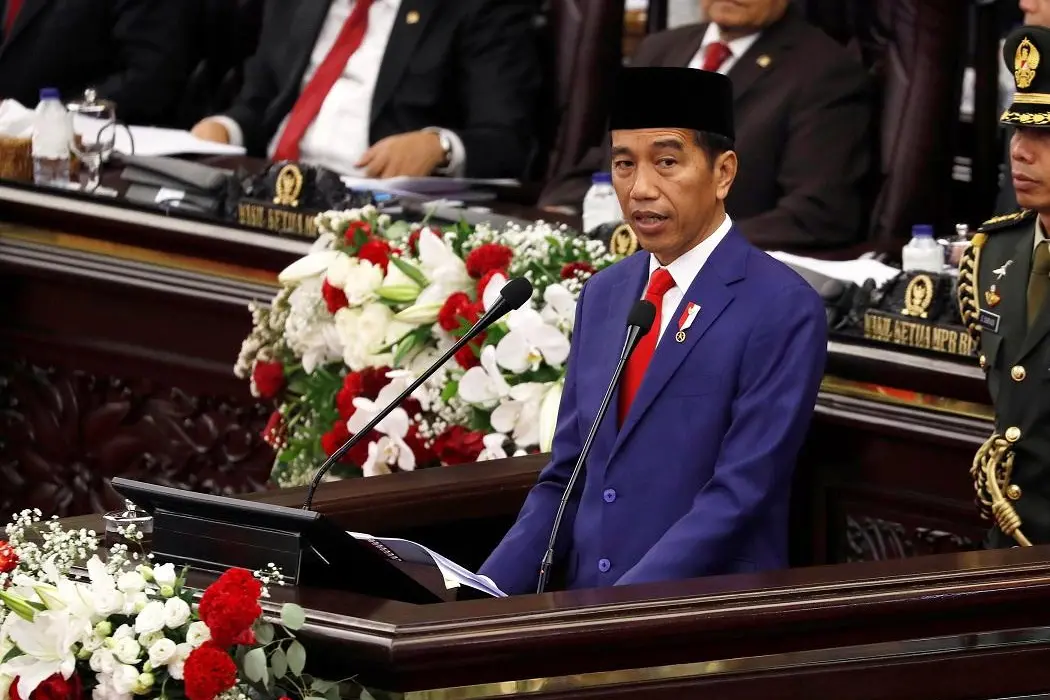PHOTO
JAKARTA - Indonesia's president unveiled on Thursday a higher 2019 growth target for Southeast Asia's biggest economy and said the government had reacted quickly to maintain stability after turbulence in emerging markets.
In his annual budget speech to parliament, President Joko Widodo set a 5.3 percent economic growth target for 2019, down a notch from 2018's originally-set goal of 5.4 percent but above the 5.2 percent the government now expects for this year.
He said the rupiah currency was expected to average 14,400 a dollar next year, against the current 14,600 level. Widodo had targeted a 13,500 average rate for 2018 in his budget speech last year.
The rupiah has been one of the worst performing currencies among emerging markets in Asia this year, losing about 7 percent of its value amid pressure from rising U.S. interest rates, global trade tensions and contagion risk from Turkey's crisis.
Bank Indonesia (BI) has increased interest rates four times, including at a meeting on Wednesday, to defend the rupiah and analysts warn this could constrain growth into next year.
Finance Minister Sri Mulyani Indrawati said the 2019 GDP growth target took account of recent stabilisation measures.
Widodo said the government "has quickly reacted to maintain economic stability and resilience" amid global volatility, including by seeking to control imports.
The 2019 budget proposal is 10 percent bigger than the government's budget for 2018, at 2,439.7 trillion rupiah ($167.05 billion), Widodo said. This included an allocation for infrastructure at 420.5 trillion rupiah, slightly above this year, and despite plans to delay some projects requiring high imports.
The president set the 2019 fiscal deficit target at 1.84 percent of GDP, below the 2.12 percent expected this year. He said this proved the government was maintaining its finances "prudently and responsibly".
David Sumual, Bank Central Asia's chief economist, said that overall the assumptions for 2018 are realistic.
"It looks like the strategy remains the same: conservatism. Probably because of the external challenges," he said.
ADB Institute researcher Eric Sugandi said the budget appeared to have been designed carefully, taking into account global trade woes and setting a "not too ambitious" growth target
Widodo, who is seeking a second five-term term in an election next April, had pledged to lift annual GDP growth to 7 percent when campaigning in 2014.
In his speech, he highlighted challenges including fluctuations in commodity prices as well as U.S. trade and interest rate policies, noting how some emerging markets had been sucked into crises by mismanaging factors they can control.
Frederico Gil Sander, the World Bank's lead Indonesia economist, told Reuters Widodo's pledge to reduce the fiscal deficit and a conservative fiscal policy "even though we're going into election year, is sending a strong signal that stability is important".
The budget proposal needs parliamentary approval.
($1 = 14,605 rupiah)
(Additional reporting by Agustinus Beo Da Costa and Gayatri SuroyoEditing by Ed Davies and Richard borsuk)
© Reuters News 2018




















